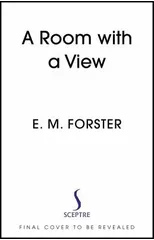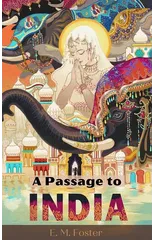A Passage to India is a novel written by E.M. Forster. The book was published in 1924 and considered by many as one of the author's finest works. It examines racism and colonialism as well as a theme Forster developed in many earlier works. The novel portrays the relationship between the British and the Indians in India and the tensions that arise when a visiting Englishwoman, Adela Quested, blames a well-respected Indian man, Dr. Aziz, of having attacked her during an outing. Among Aziz's defenders is Cecil Fielding who is the principal of the local college. Adela, during the trial, hesitates on the witness stand and then withdraws the charges. Aziz and Fielding go their separate ways, but two years later they have a tentative reunion. Again they are separated, symbolizing the racial politics that caused a rift in their friendship. A Passage to India was adapted into a film in 1984 and the movie was nominated for numerous Academy Awards.
E M Forster
E. M. Forster (1879-1970) was an English novelist known for his exploration of class differences and human relationships. His most notable works include "A Room with a View," "Howards End," and "A Passage to India." Forster's writing style is characterized by its clarity, wit, and insight into the complexities of human emotions. He is credited with portraying the inner lives of his characters with sensitivity and depth. Forster's contributions to literature include his exploration of themes such as imperialism, social injustice, and the struggle for personal freedom. His most famous work, "A Passage to India," is considered a masterpiece of modernist literature and continues to be studied and celebrated for its poignant portrayal of the clash between British colonizers and Indian natives. Forster's work has had a lasting impact on the literary genre of the novel, influencing generations of writers with his thoughtful exploration of the human experience.




